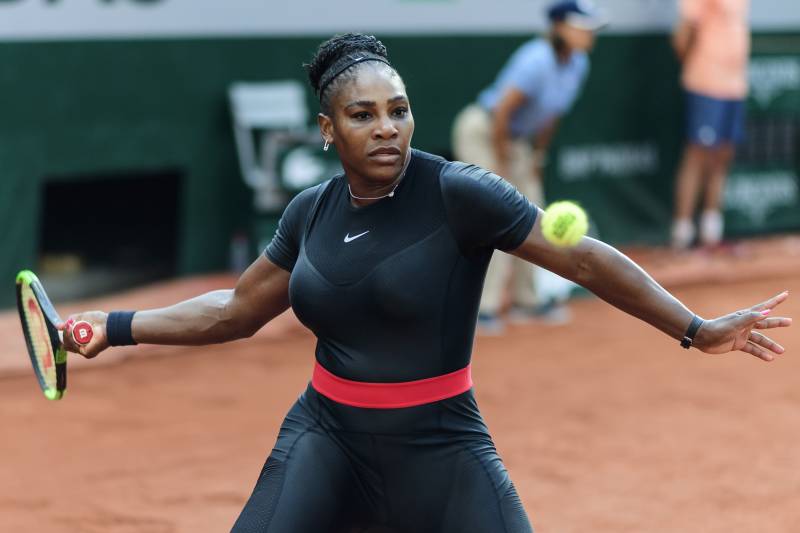In this past December, there was a clip of an awards show that featured star forward for team Olympique Lyonnais, Ada Hegerberg, in which, while accepting a prestigious award, the host of the awards ceremony asked a perhaps inappropriate question regarding a dance move. He [Martin Solveig] casually asked her, “Do you know how to twerk?” Hegerberg kept her cool and brushed him off with a professional “no” as a response. Talk about bad timing.
Hegerberg was the first recipient of the women’s Balon d’Or, and that moment will not only be remembered as a great night for women’s soccer worldwide but it will be remembered for Solveig’s sexist comment.
This is just one of the many examples that aids in this ongoing problem. And this is a problem especially in the sports industry. It affects the women who play sports, the women who cover sports; also sexism in sports affects minorities and the LGBTQ community.
Sexism has always been a topic of discussion, but let’s be honest, there have been a few things said about it but really no real changes have been made. The language that is used in women’s sports as opposed to men’s sports is quite different.
Sportscasters will use some sexual innuendos and throw in a couple inappropriate jokes, but while covering men’s sports, you hear nothing of the sort. When they characterize women, sometimes the language that they will use puts more importance on the roles of the woman first and then speaking on their athletic accomplishments.
I remember watching the WNBA Finals when Candace Parker won the title in 2016. I distinctly remember one of the reporters describing Parker as mother, wife and now WNBA Champion. It’s like they are saying that Parker’s role is a woman first then an athlete next.
Another example would be Olympic medalist Corey Cogdell. A newspaper published a story on her and instead of introducing her as Corey Cogdell, they introduced her as the “wife of Chicago Bears lineman Mitch Unrein” instead in their headline.
Women also face sexism not only on the field, but also on the broadcast booth and when reporting on different athletes. Women have to put up with numerous inappropriate comments and sexual harassment from players, coaches and even the agents. It varies from catcalling, shouting, being propositioned and even being flashed by the players.
Sometimes what can even be worse is not being taken seriously at your position. Take the Cam Newton debacle for example. The Carolina Panthers beat writer Jourdan Rodrigue asked a great question to Newton about routes. Newton’s response? He pauses and smiles and then replies, “It’s funny to hear a female talk about routes. It’s funny.”
Many remember the Don Imus remarks back in 2007 when he called all the members on the Rutgers University women’s basketball team “rough girls and nappy-headed ho’s.” Also adding to the matter is the sexualization of women in sports in the industry. All men have to do is excel at their craft. Women, on the other hand, have to not only excel at their craft, but look sexy doing it. When there is over-sexualization and no type of same acknowledgement of equal capabilities, now we have a disconnect.
Sometimes men tend to label female athletes as “cute”, “pretty” or “sexy” which is somewhat labeling and sometimes takes away from the fact that they are talented athletes, not sex objects. Although it is a compliment, it can also cause you to look past and even belittle the athletic ability and the talent that’s being displayed.
The Serena Williams “cat suit match” was another example that came to mind. When she showed up and straight dominated the French Open in 2018, never mind the talent that’s on full display, all they could talk about was the black cat suit instead of discussing her return to dominance from her pregnancy. The reply? Nike ran an ad saying, “You can take the superhero out of her costume, but you can never take away her superpowers”.
Another point is female athletes are constantly being compared their male counterparts in the same sport. That’s the ongoing problem and unfortunately the harsh reality in women’s sports and women’s sports coverage.
Unfortunately, the media is to blame. Media will allow more coverage to go to men’s sports over female sports because they say that there are more men attracted to sports than women. Corporate and most of the larger networks and advertisers will say that sexism and the selling of provocative yet sexy images of female athletes is a win-win and it definitely works, but just because this is what the people want doesn’t make this all right.
Gender equality is something that we are still striving for and we are doing a great job by starting to speak out against gender inequality, challenging and shattering the myths, supporting women’s sports, pushing for stricter gender policy equality and, most importantly, encouraging other women and younger girls.
Sexism has been around since the beginning of time but now in this day and age, there isn’t as much tolerance for sexism and there is starting to be a shift in the culture that we hold near and dear to us called sports.

